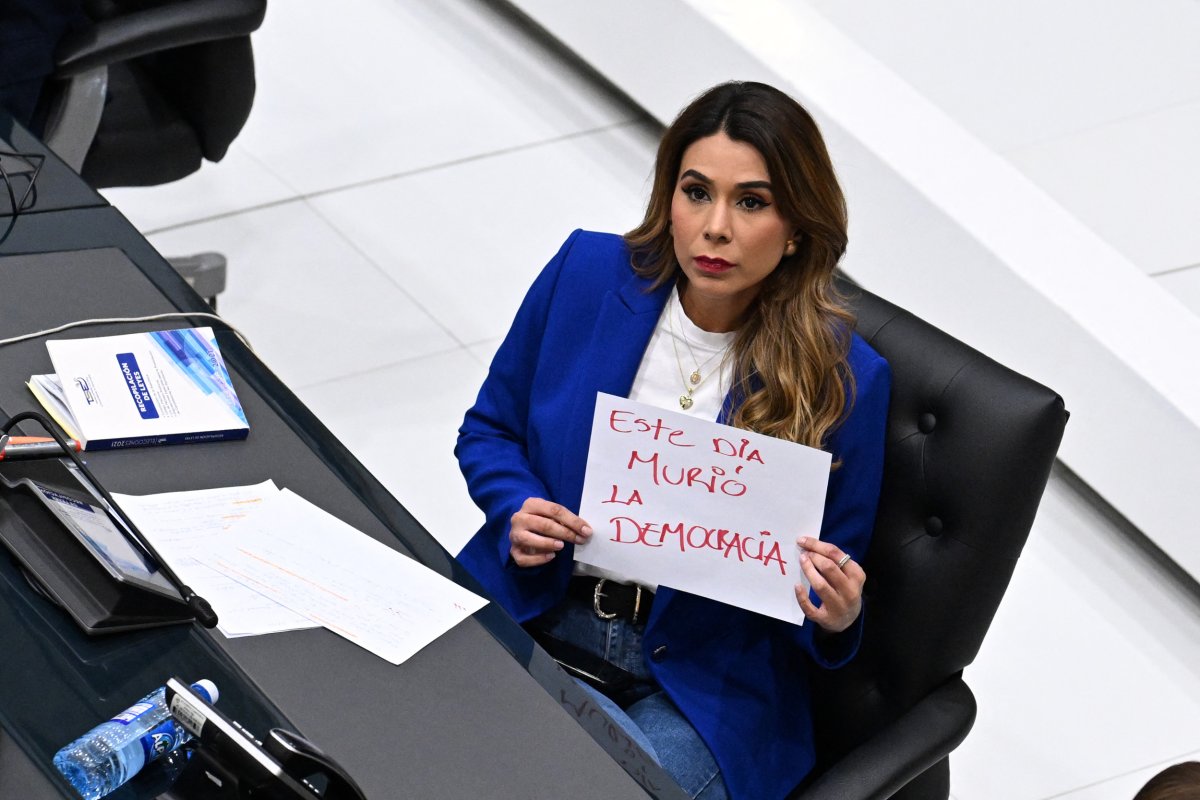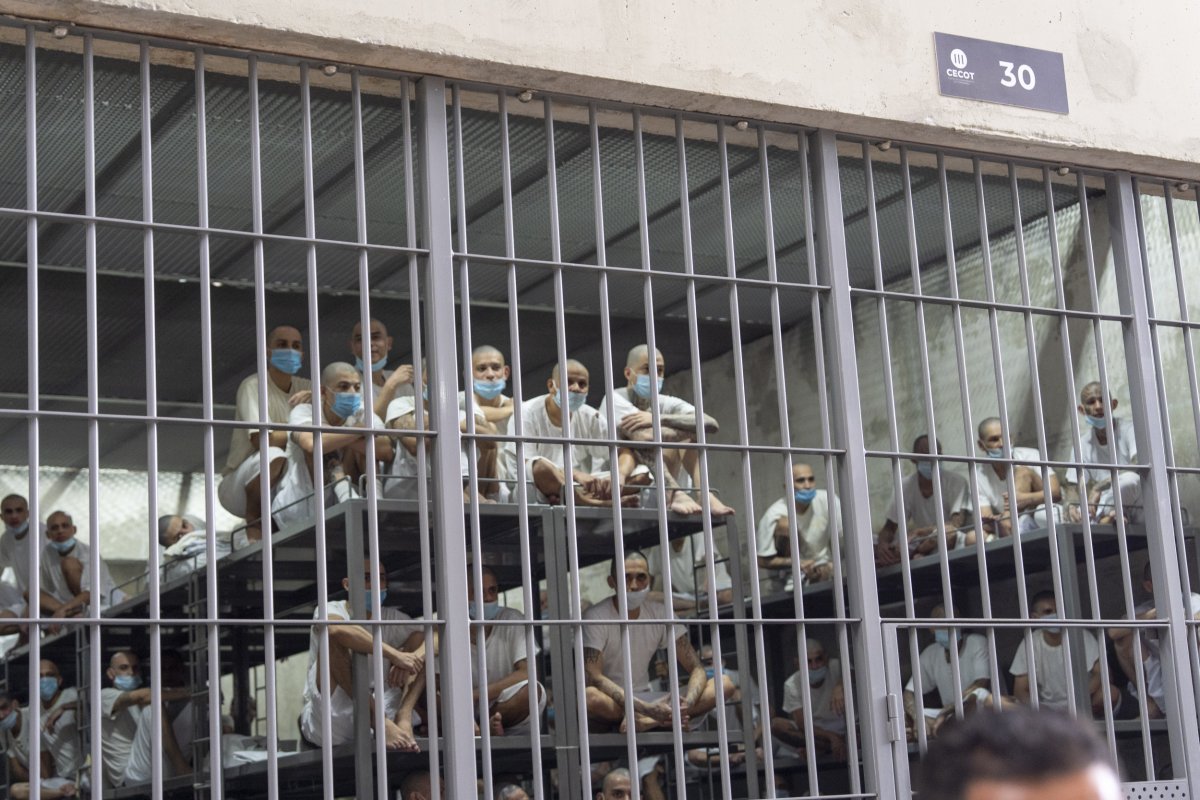El Salvador’s president and Donald Trump’s closest ally in Latin America, Nayib Bukele, has secured a sweeping political victory after lawmakers approved a controversial constitutional change allowing indefinite presidential re-election and extending presidential terms to six years.
Bukele’s Nuevas Ideas (New Ideas) party, which controls more than 90 percent of the country’s Legislative Assembly, pushed through the reforms with a 57–3 vote. The changes eliminate a long-standing ban on consecutive presidential terms and remove the second round of elections, consolidating Bukele’s grip on power ahead of the next vote, which will now be held in 2027 instead of 2029.
Why It Matters
The constitutional overhaul comes as Bukele cements his status as one of Donald Trump’s strongest partners in the region. Following Trump’s return to the White House in January, Bukele quickly positioned himself as an ally, offering to house more than 200 deportees from other countries in El Salvador’s mega-prison built to detain gang members.

Getty Images
Observers say the changes could shift the political landscape in Latin America, where Bukele’s aggressive anti-gang policies and consolidation of power have inspired right-wing leaders.
What To Know
Bukele’s current term, originally scheduled to run until 2029, will now end in 2027 under a new law that moves presidential elections forward to coincide with congressional and local races.
Opposition lawmakers condemned the changes as a direct threat to democratic rule. Marcela Villatoro of the Nationalist Republican Alliance stood in the chamber holding a sign reading “Democracy died today” and told reporters the reforms were pushed through “without consultation, in a crude and cynical way.”
Human rights advocates compared the move to Venezuela’s constitutional changes under Hugo Chávez. Juanita Goebertus, Americas director at Human Rights Watch, warned that El Salvador is “traveling the same path,” adding, “it starts with a leader who uses his popularity to concentrate power, and it ends in dictatorship.”

More
Getty Images
Despite criticism, Bukele—who has called himself the “world’s coolest dictator”—remains one of the region’s most popular leaders. He was re-elected in 2024 with 82.8 percent of the vote after a Supreme Court stacked with his allies lifted the ban on consecutive terms.
His sweeping gang crackdown, which has imprisoned more than 2 percent of the adult population under an ongoing state of emergency, has sharply reduced homicide rates and boosted his popularity both in El Salvador and abroad. Undeterred by international criticism, Bukele has promoted his crime policies as a model for other nations battling gang violence.
State of Emergency
El Salvador has been under a state of emergency since March 2022, following a deadly wave of killings by powerful street gangs. During this period, Bukele suspended fundamental rights, including access to legal counsel, and authorities have arrested more than 83,000 people with little or no due process, according to human rights organizations.
The CECOT prison, the centerpiece of Bukele’s crackdown, has been central to his anti-gang strategy since he took office in 2019. Designed to hold up to 40,000 inmates, many of them convicted murderers, drug traffickers, and members of gangs like MS-13 and Barrio 18, the facility has become a symbol of his hardline approach.

AP Photo/Alex Brandon
Personal items, books, and family letters are banned. Prisoners spend 23.5 hours a day in their cells, with only a 30-minute window for exercise or religious activities in a central hallway. Meals are basic, consisting mainly of beans, rice, and plantains, with no meat served.
Recently, Venezuelan migrants deported to El Salvador by the Trump administration in March—after previously being sent back to Venezuela last July—reported violence and torture during their three-month stay in prison.
Bukele has dismissed these criticisms, crediting his hardline policies for his popularity and re-election in February with over 84 percent of the vote. He defended the ongoing state of emergency, arguing that while security gains could be maintained without it, more gang members must be arrested to prevent them from regrouping.
What People Are Saying
Juanita Goebertus, Human Rights Watch’s Director for the Americas, wrote on X: “Bukele’s party is pushing a fast-track constitutional reform to allow indefinite presidential re-election. They are following the same path as Venezuela. It starts with a leader who uses his popularity to concentrate power, and it ends in dictatorship.”
Ana Figueroa, a lawmaker in El Salvador, posted on X: “Historic day for our country! The people now have full power to freely choose their leaders.”
El Salvador’s president, Nayib Bukele, said in a January address to the nation: “You know what? I don’t care if they call me a dictator. I would rather be called a dictator than watch Salvadorans being killed in the streets or get reports of how many dead we have every day.”
What Happens Next
The reforms still require a second vote in the Legislative Assembly for full ratification, a step considered a formality given Bukele’s supermajority. Once confirmed, the changes will set the stage for new presidential elections in 2027, two years earlier than scheduled, where Bukele could run for another six-year term under the indefinite re-election rules.


